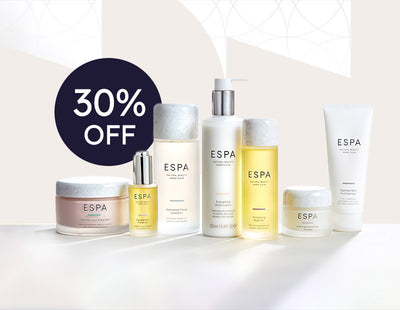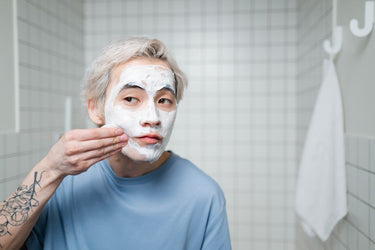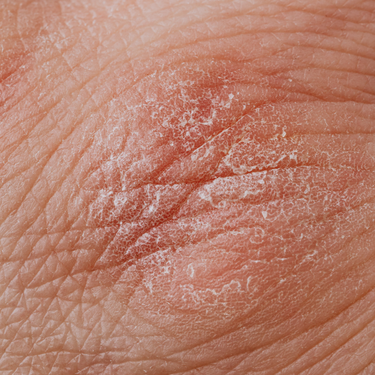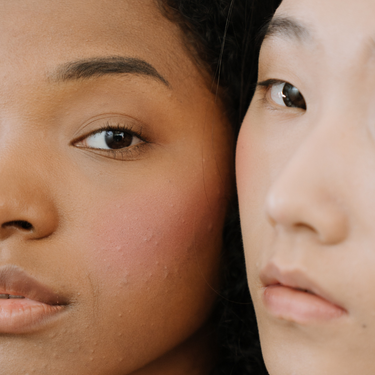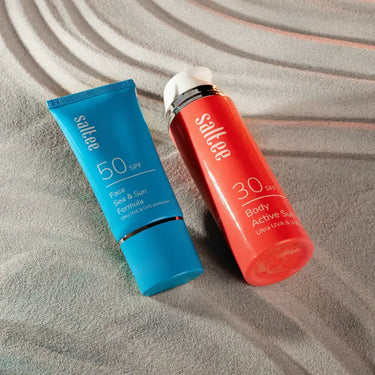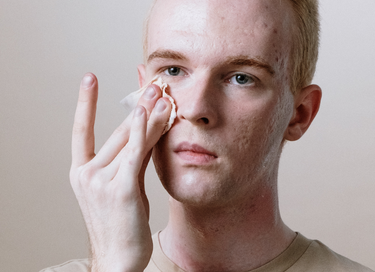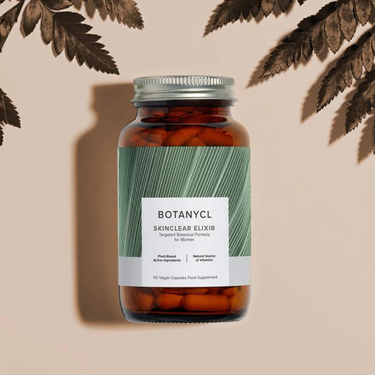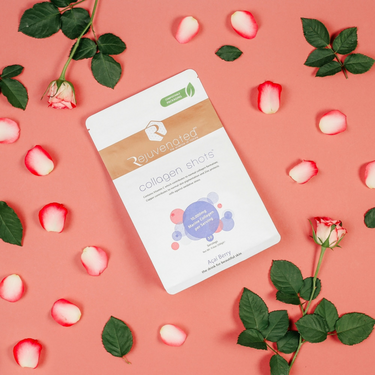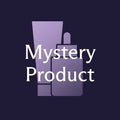A Guide To The Different Types Of Vitamin C

We're all familiar with the powerful antioxidant benefits of Vitamin C and how they can keep your skin looking bright, fresh, and luminous. But, did you know that not all Vitamin C products are created the same and there are lots of different formulas to choose from?
Some work best at defending against environmental aggressors and free-radicals, whilst others are perfect for fading hyperpigmentation and dark spots. It can be tricky to know which Vitamin C is right for you, so we have created the ultimate guide to different Vitamin C formulas, and how to select the right product for you and your skin type...
What is vitamin C?
Vitamin C is a potent antioxidant that helps to protect your skin against ageing free radicals. It also supports your skin's natural regeneration process, helping your body to repair damaged skin cells. Just as you would eat antioxidant-rich foods to help your body fend-off free radicals, topical antioxidants do the same thing for your skin, and help protect against environmental aggressors such as UV rays and pollution.
Vitamin C has an abundance of healing properties when topically applied to the skin. Because it is highly acidic, the skin is triggered to begin healing itself by speeding up the production of collagen and elastin, which are naturally occurring protein fibres that help to keep the skin plump, firm, and youthful. Vitamin C also helps to slow down the amount of melanin that your skin produces, which is what triggers hyperpigmentation and dark spots. With regular use, Vitamin C will brighten the complexion and fade dark spots without changing the normal pigmentation of your skin.
Different types of Vitamin C formulas
L-Ascorbic Acid
Known as the pure form of Vitamin C, L-Ascorbic Acid is hailed for being the most effective form of Vitamin C available. It is a powerful antioxidant that fights free radicals, boosts collagen production, and reduces the appearance of dark spots. However, it is oxidises easily and becomes ineffective when exposed to light, heat, and air, so expect it not to be effective 6-months after you've opened it, and only buy it if you're going to begin using it straight away. On the other hand, high concentrations of L-Ascorbic Acid may irritate the skin, especially when it is formulated at a low pH (which is needs to be effective). It may also trigger spots in oily and acne-prone skin. But, if your skin isn't sensitive or oily and you want a product that will help prevent ageing, L-Ascorbic Acid is the formula for you.
Product Recommendation: SkinCeuticals C E Ferulic
Formulated with 15% pure Vitamin C (L-Ascorbic Acid), 1% Vitamin E, and 0.5% Ferulic Acid, this powerful multi-antioxidant serum protects the skin against environmental aggressors, free radicals, and oxidative stress that can lead to premature ageing. The result? Brighter, healthier, and more youthful-looking skin.

Tetrahexyldecyl Ascorbate
The newest formula of Vitamin C, Tetrahexyldecyl Ascorbate penetrates the skin deeper and more quickly that any other form of Vitamin C. It helps to fight free radicals, boost collagen, and brighten the skin. It may be irritating for those with sensitive skin types, but if your skin can tolerate L-Ascorbic Acid, then it will most likely be fine with Tetrahexyldecyl Ascorbate.
Product Recommendation: Medik8 Daily Radiance Vitamin C
Help prevent premature ageing with this antioxidant-rich Vitamin C and SPF30 moisturiser. Formulated with a lipid soluble form of Vitamin C (Tetrahexyldecyl Ascorbate), this hydrating face cream boosts skin's radiance, plumps fine lines and wrinkles and boosts collagen for a more youthful complexion.

Magnesium Ascorbyl Phosphate
This water-soluble derivative of Vitamin C fights free radicals and increases collagen production. It is a stable, less irritating and more effective at lower concentrations when compared to L-Ascorbic Acid. Magnesium Ascorbyl Phosphate is considered one of the most hydrating forms of Vitamin C, and it promotes hydration deeper within the skin, and it also holds soothing properties which may help reduce blemishes. It degrades when exposed to light, heat, and air like all other formulas of Vitamin C, but a lot more slowly. If you have sensitive skin and you're looking for a less potent alternative to L-Ascorbic Acid, then this is your pick of the bunch.
Product Recommendation: Image Skincare Vital C Hydrating Anti-Aging Serum
Suited to all skin types, this hydrating serum contains Hyaluronic Acid and multiple forms of Vitamin C to rejuvenate a dry, dull, and tired complexion while reducing the appearance of fine lines, wrinkles, and dark spots for a plump, supple, and luminous finish. With a light and comforting texture, it works effectively at protecting the skin against oxidative damage and reduces visible signs of stress and fatigue on the skin.

Ascorbyl Glucoside
This is a water-soluble form of Vitamin C that has been combined with a form of sugar called glucose. Once it has been absorbed into the skin, an enzyme called alpha-glucosidas breaks it down into L-Ascorbic Acid (the purest form of Vitamin C). Because it has undergone this conversion process it is a lot less likely to cause sensitivity and irritation, but still provides the skin with all of a collagen-boosting and skin brightening effects associated with Vitamin C. It is also much more stable when exposed to oxygen and light, which is why it is often used in skincare.
Product Recommendation: Dermalogica Multivitamin Power Serum
Retexturise and revitalise the skin with this velvety serum infused with microencapsulated vitamins A, C and E that melt into the skin to help reduce the appearance of fine lines and hyperpigmentation. The addition of Protein Peptides support skin's resilience, helping to boost elasticity and minimise the appearance of sun-induced ageing.

Are you looking to introduce retinal into your routine? Discover our ultimate guide to Medik8's iconic Crystal Retinal's here.


